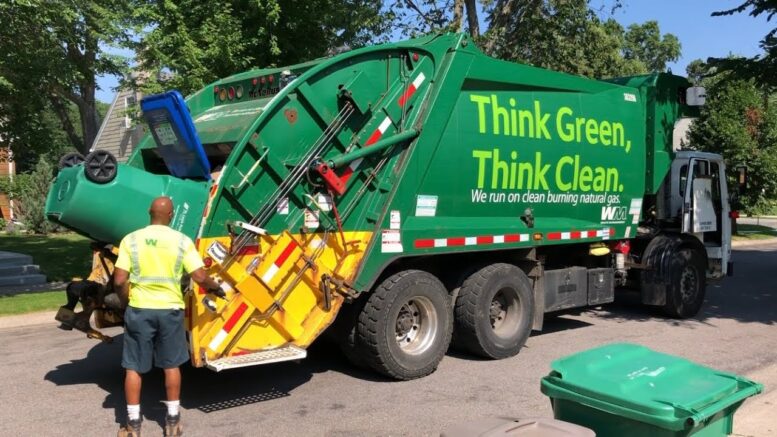Maine has adopted a “first-in-the-nation” law requiring packaging producers to help cover the cost of recycling materials from paper sandwich boxes to bubble wrap.
Under new law, recently signed by Gov. Janet Mills, the Maine Department of Environmental Protection will oversee a fund that would be paid into by large producers of paper, plastic and cardboard packaging.
Required payments into the fund would be based on the amount and types of packaging material sold. Revenue from the funds will be used to reimburse cities and towns for the cost of recycling the materials, which have skyrocketed in recent years, straining municipal budgets.
Environmental groups praised the state’s decision to move ahead with the new law, saying it will shift the costs of recycling to the companies that are producing the waste.
“Cities and towns are paying exorbitant disposal rates for polluting products that are deliberately manufactured to be unrecyclable,” said Peter Blair, an attorney with the Maine chapter of the Conservation Law Foundation. “It’s time plastic producers pay for polluting our air, land, and water with their products, and this law will finally hold them accountable.”
Collectively, Maine consumers are paying 100% of the cost of recycling materials that are estimated at upwards of $16 million per year, according to environmental regulators.
The new law exempts smaller producers who create less than 1 ton of waste a year or generate more than $2 million in annual revenue.
Packaging manufacturers strongly opposed the measure, arguing that it is necessary and would ultimately add to the costs of recycling.
The paper industry also opposed the proposal, arguing that the current recycling system is working.
“More than twice as much paper is recycled then is sent to landfills, and every ton of paper recovered for recycling saves 3.3 cubic yards of landfill space,” Patrick Strauch, executive Director of the Maine Forest Products Council, said in recent testimony opposing the measure. “Paper recycling helps extend the life of paper and paper-based packaging products, making it an integral part of the industry’s sustainability story.”
The Maine Chamber of Commerce expressed concerns that costs would be passed onto consumers at a time when many are still recovering from the economic fallout of the pandemic.
“We all recognize that recycling and solid waste are significant issues at the municipal level but embarking on such a new program at this time is not the right direction as we began to recover from the COVID-19 pandemic,” Ben Gilman, the chamber’s general counsel, said in recent testimony.
But supporters say the state’s recycling system is “broken” because producers have no incentives to make their packaging more recyclable and cities and towns are paying the price.
“Taxpayers should not shoulder this burden,” said Sarah Nichols, with the Natural Resources Council of Maine, which backed the new law. “Shifting the costs away from taxpayers will literally enable towns to retain their recycling programs.”
This article was originally posted on Maine law shifts recycling costs to packaging producers

Be the first to comment on "Maine law shifts recycling costs to packaging producers"